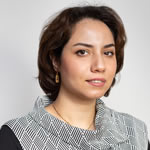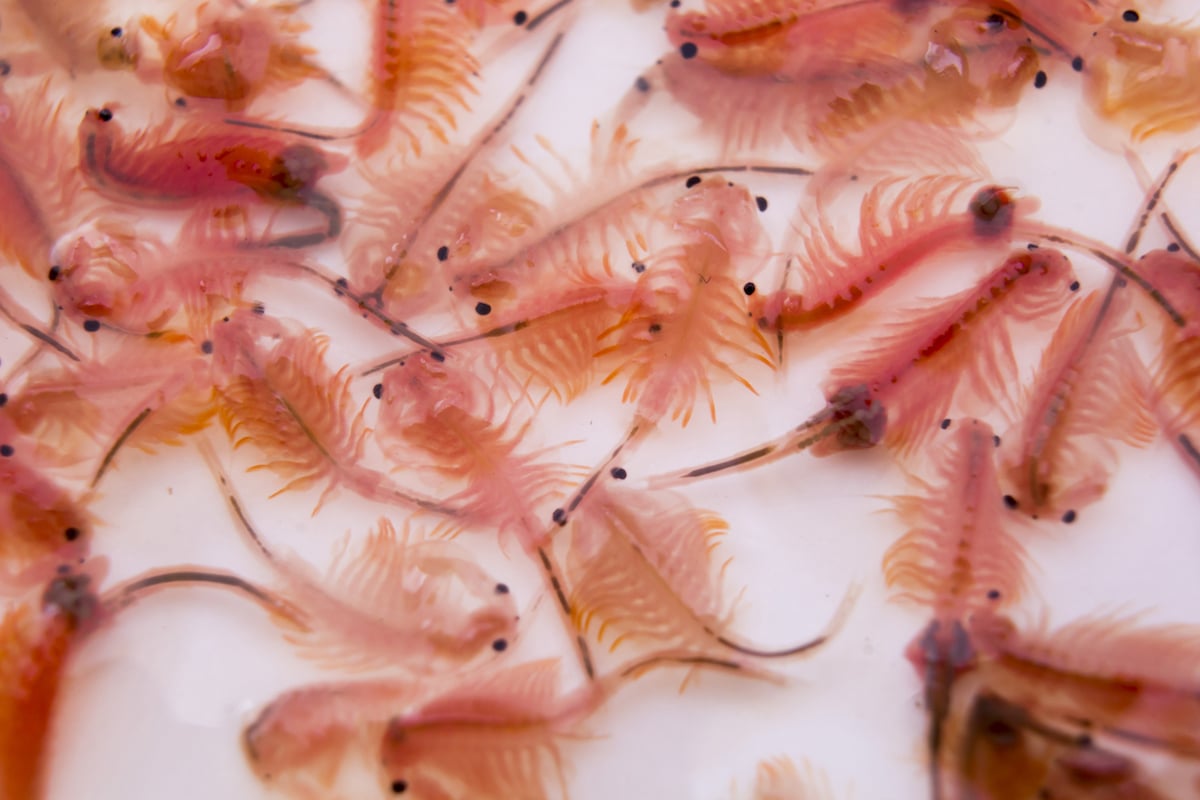Parisa Norouzitallab

Presentation
Epigenetics is the study of reversible changes in gene expression and function that occur without modifications in the DNA sequence. The epigenetic variations that are environmentally determined contribute to inter-individual variation in gene expression and, thus, to variation in the development of phenotypes in an individual or even throughout the entire population. These epigenetic modifications can, in some cases, be inherited by subsequent generations, even when the initial external stimuli are no longer present in the environment of these organisms. My research interests are focused on 1) probing the epigenetic mechanisms behind the development of phenotypes that can be inherited by subsequent generation/s with a focus on innate immunity and trained immunity in crustaceans, 2) development of epigenetic markers for evaluating the efficiency of an individual product or feed in terms of immune priming, 3) Understanding the interaction between genome and epigenome in light of climate change.

Teaching
- Course coordinator and leader since 2021: Epigenetics Management of Stress and Disease, Uppsala University (2 credits)
- Lecturer since 2022: Advanced Animal Nutrition, SLU (MSc level; 15 credits)
- Lecturer since 2021: Sustainable Aquaculture, SLU (MSc level;15 credits)
- Lecturer in 2021: Basic Animal Breeding and Genetics, SLU (30 credits)
- Lecturer since 2021: Aquaculture Genetics, UGent, Belgium (MSc level; 5 credits).
Research
To address my research questions, I have been using Artemia, salmonid fish, shrimp, and crayfish as model organisms. Artemia is a small crustacean with a short generation time. It produces dormant eggs that can be stored for months without losing viability—a property that is unique and is mostly described for plant models.
Cooperation
Terengganu University, Malaysia
Gorgan University and Urmia University, Iran
Ghent University, Belgium
Uppsala University, Sweden
Chulalongkorn University, Thailan
Linköping University, Sweden
Background
- B.Sc in Natural Resource Engineering - Fisheries Science, Tehran University, Iran (2003 -2007)
- M.Sc in Aquaculture, Ghent University, Belgium (2008 -2010)
- Ph.D in Applied Biological Sciences, Ghent University, Belgium (2010 -2015)
- Postdoc 1. Lab of Immunology and Animals Biotechnology, Ghent University, Belgium (2015 - 2018).
- Postdoc 2. Lab of Immunology and Animals Biotechnology, Ghent University, Belgium (2018 - present)
- Postdoc 3. Department of Physiology and Environmental Toxicology, Uppsala University, Sweden (2020 - 2022)
- Postdoc 4. Aquaculture and Nutraceutical Research Group, Swedish University of Agricultural Sciences, Sweden (2021 - 2022)
- Researcher. Department of Applied Animal Sciences, Swedish University of Agricultural Sciences, Sweden, (since 2023)
- Cofounder of Artemia germ-free lab, SLU
- Co-founder of germ-free rainbow trout larvae lab, SLU
Supervision
(co) supervisor of 16 master's students - 14 completed and 2 undergoing
(co) supervisor of 6 PhD students - 2 completed and 4 undergoing
Selected publications
- Roy, S., Wille, M., Norouzitallab, P., Vanrompay, D., Bossier. P (2024). Parental training with phloroglucinol protects their offspring from biotic and abiotic stressors in Macrobrachium rosenbergii. Aquaculture 581, 740448
- Sepehrfar, D., Sudagar, M., Paknejad, H., Yousefi, Siahkalroodi ., Norouzitallab P (2023). Role of phytochemicals in farmed fish reproductive performance: A review. Iranian Journal of Fisheries Sciences. 22(5) 1039-1068.
- Roy, S., Baruah, K., Bossier, P., Vanrompay, D., Norouzitallab, P (2022). Induction of transgenerational innate immune memory against Vibrio infections in a brine shrimp (Artemia franciscana) model. Aquaculture. 557, 738309.
- De Vos, S., Rombauts, S., Coussement, L., Dermauw, W., Vuylsteke, M., Sorgeloos, P., Clegg, J., ambu, Z., Van Nieuwerburgh, F., Norouzitallab, P., Van Leeuwen, T., De Meyer, T., Van Stappen, G., Van de Peer, Y., Bossier, P (2021). The genome of the extremophile Artemia provides insight into strategies to cope with extreme environments. BMC Genomics. 22: 635.
- Nursaliza Yaacob*, E., Norouzitallab, P*., De Geest, BG., Bajek, A., Dierckens, K., Bossier, P., Vanrompay, D (2020). Recombinant DnaK Orally Administered Protects Axenic European Sea Bass Against Vibriosis. Frontiers in Immunology. 10:3162. *Shared first authorship.
- Norouzitallab, P., Baruah, K., Vanrompay, D., Bossier, P. (2019). Can epigenetics translate environmental cues into phenotypes? Science of the Total Environment. 647: 1281-1293.
- Roy, S., Kumar V., Bossier, P*., Norouzitallab, P*., Vanrompay, D* (2019). Phloroglucinol treatment induces transgenerational epigenetic inherited resistance against Vibrio infections and thermal stress in a brine shrimp (Artemia franciscana) model. Frontiers in Immunology. 10: 2745.
- Norouzitallab, P., Baruah, K., Vanrompay, D., Bossier, P. (2019). Teaching Shrimps Self-Defense to Fight Infections. Trends in Biotechnology. 37: 1: 16 -19. IF: 19.536.
- Norouzitallab, P., Baruah, K., Biswas, P., Vanrompay, D., Bossier, P. (2016). Probing the phenomenon of trained immunity in invertebrates during a transgenerational study, using brine shrimp Artemia as a model system. Scientific Reports. 15: 6: 21166. IF: 4.9.
- Norouzitallab, P., Biswas, P., Baruah, K & Bossier, P. (2015). Multigenerational immune priming in an invertebrate parthenogenetic Artemia to a pathogenic Vibrio campbellii. Fish & Shellfish Immunology. 42: 2: 426 - 429. IF: 4.2.
- Norouzitallab, P., Baruah, K., Muthappa, D. M & Bossier P. (2014). Non-lethal heat shock induces HSP70 and HMGB1 protein production sequentially to protect Artemia franciscana against Vibrio campbellii. Fish & Shellfish Immunology. 42: 2: 395 – 399. IF: 4.43.
- Pestana, J., Novais, S., Norouzitallab, P., Vandegehuchte, M. B., Bossier. P., De Schamphelaere, K (2016). Non-lethal heat shock increases tolerance to metal exposure in brine shrimp. Environmental Research. 151: 663-670. IF: 6.94.
Links
Publications list:
